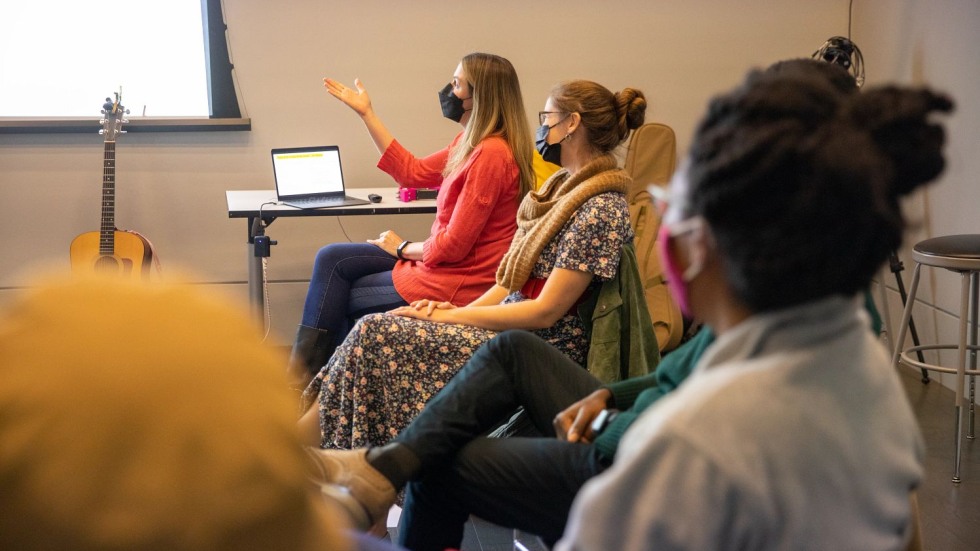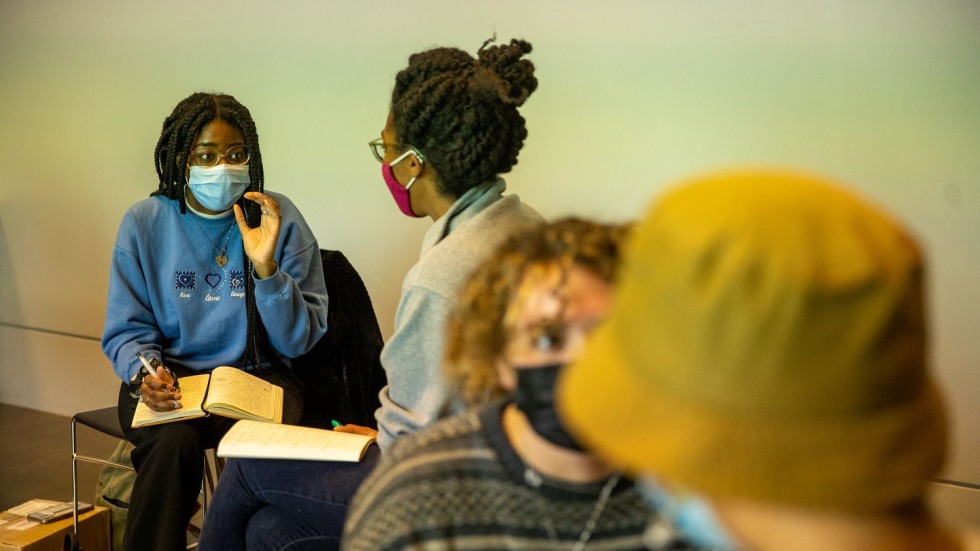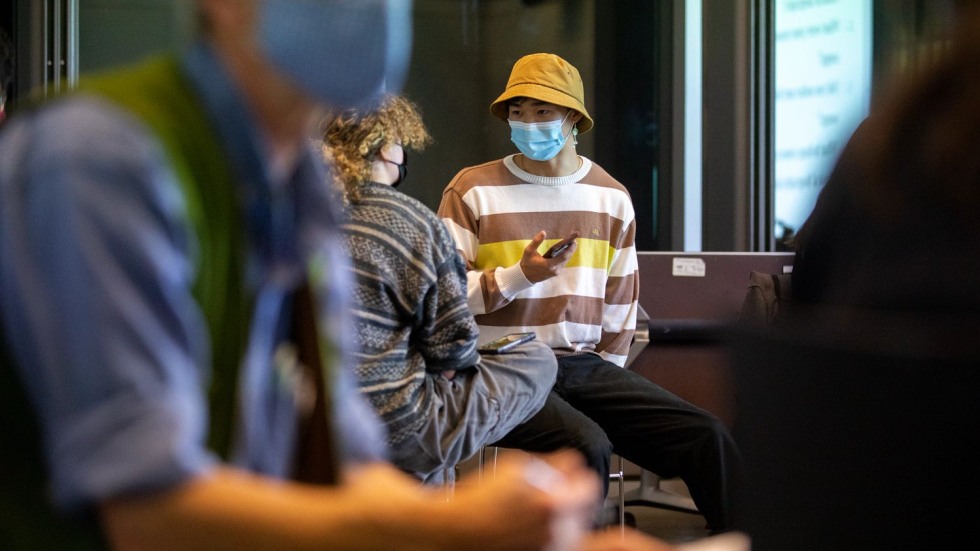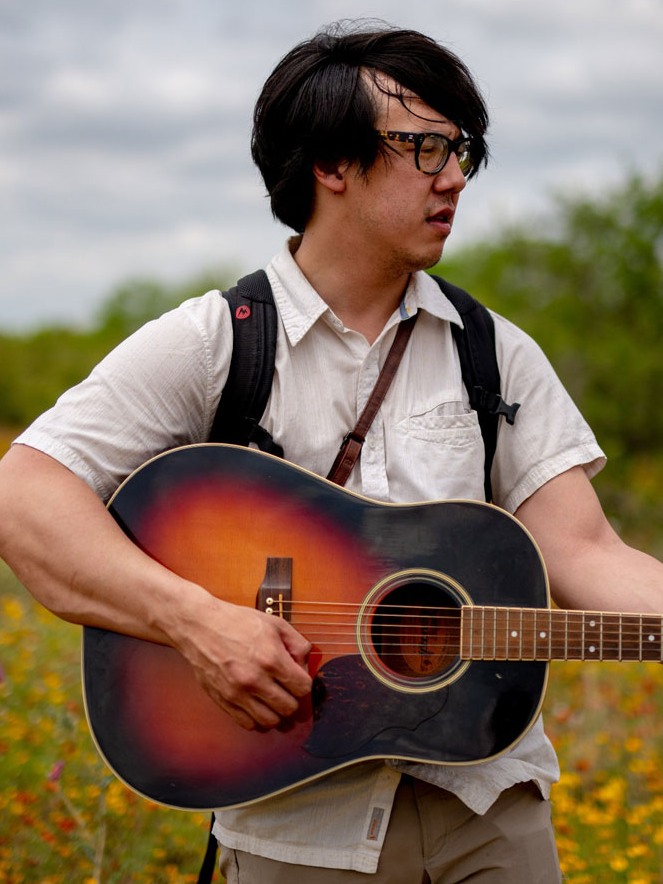PROVIDENCE, R.I. [Brown University] — Liana Haigis’ latest song opens with a bouncy strumming pattern and lyrics delivered in rapid-fire: “How many weeks should it take to get over a relationship that wasn’t even one from the start?”
“I wrote this song about someone else’s relationship, and I’ve never done that before,” Haigis explained to an audience of Brown students, employees and Providence community members gathered in the University’s Granoff Center for the Creative Arts on a late November evening. “I’m also starting to experiment with interesting chords, which I never really focused on. My goal for the semester is to become a fancy chord person like you,” she said, pointing to fellow student Linus Lawrence.
Haigis, a second-year student in Brown’s eight-year Program in Liberal Medical Education, is shaking up her musical compositions thanks in part to the Brown Arts Institute’s Songwriting Workshop.
Every Tuesday evening throughout the academic year, Haigis meets a cohort of others at Brown and from the Providence community who share an interest in honing their songwriting craft. Members of each year’s cohort come from vastly different backgrounds: some are Brown students aspiring to careers in computer science and playwriting; others are librarians and educators who work on campus; still others work and live in the Providence area and are otherwise unaffiliated with Brown. They come together to discuss the art of writing songs, perform for one another and receive feedback on songs in progress. In May 2022, the 2021-22 cohort members expect to share the fruits of their labor with the public in a showcase concert. The workshop series is free to participants, and come late summer, anyone in the community can apply to be part of it.
“The Songwriting Workshop provides space for songwriters to experiment, collaborate and engage in unexpected ways,” said Sophia LaCava-Bohanan, assistant director for programs at the BAI. “It helps them build confidence in their abilities to share and perform their work, at Brown and beyond.”



